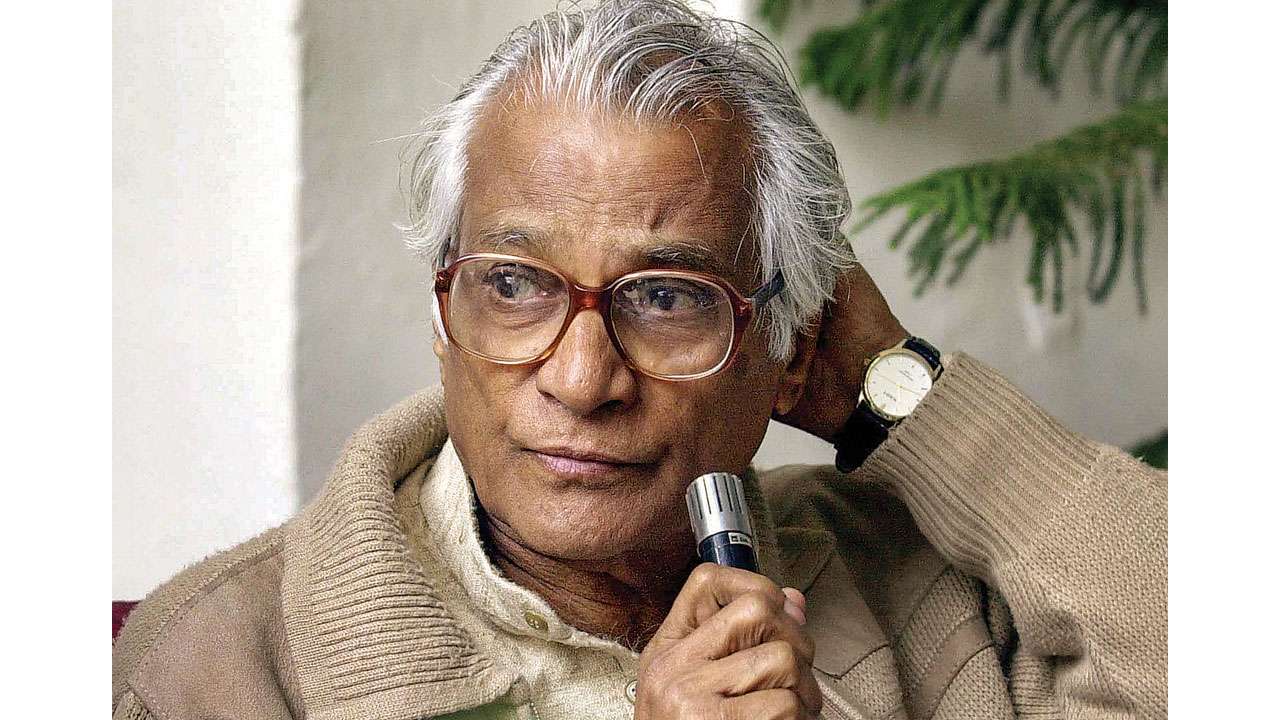Remembering a departed icon, writes Jaya Jaitly

George Fernandes George sahab never had any spare time, since he was always surrounded by people
George Fernandes was a fearless leader and always full of energy. He had that restlessness to do something for people. And he did politics for the people.
I used to meet him regularly and I was to meet him again on Tuesday, but that was not to be. Such is life. People in Bihar, and indeed from everywhere else, really loved him and they are mourning his death.
When he was the Union industry minister in the Janata Party government, his relations with my husband Ashok Jaitly were good. I used to work on handicrafts in the Gujarat emporium. I never visited him because I was not interested in politics and George sahab was my husband’s boss.
There was Emergency in the country and we were posted in Kashmir, which was also the only state in India that opposed the Emergency. Hence, we were relatively freer there. When the Emergency was over, people generally believed that Indira Gandhi had been wrong in imposing it. I met George sahab only a couple of times when he was minister. Not before that.
After the Janata Party lost power, my husband moved back to Kashmir and George sahab’s wife had gone to the US. Then I used to go and look up his child.
It is my habit to help friends and their children. I never looked at George sahab like a political icon. He was so busy that he never had time for his child or the house, so I chipped in.
George sahab saw that while friendships in politics are often need-based and opportunistic, here I was, working and helping selflessly. He was impressed and began to depend a lot on me.
All this is around 1979 or so. In 1984, during the Delhi anti-Sikh riots, I set up a camp for riot victims. After that, George sahab, Chandrashekhar and Farooq Abdullah set up a committee to assist the Sikhs and I was made in charge.
I worked under adverse circumstances, but the desire to do social work was very high. Then I felt that the best way to do social work would be to join politics.
I joined the Janata Dal (JD) as an ordinary worker. Then SR Bommai was the president of JD. I organised a big meeting of handicraft workers in which Bommai and other very senior leaders were invited. After the success of the meeting, I was appointed national general secretary of the JD.
As for the so-called Tehelka investigation, it was sponsored by the Congress and some defence sector middlemen. Tehelka was just a front. It was an attempt to pull down the NDA government by the Congress and the Hindujas. When they could not reach George sahab, they targeted me.
After the Kargil War, there were several charges leveled against George: Among them, the case of coffin purchases and Congress’ vitriolic and belligerent tone.
The Congress raised a shindig over coffins, but the CBI probe found nothing. There was no allegation against George sahab and there is no question of a case. But I was implicated. It was an attempt to insinuate that George sahab made money through me. The government does not have the moral courage to apologise for their mistakes, when the CBI did not come up with anything against him.
I am not associated with any political party. I believe in teamwork and that is why I had joined politics, to bring about change for which people could launch joint struggles.
I had helped a lot of people when I was president of the Samata Party. But since Tehelka broke out, no one has once come and asked me how I am managing things in the situation I am in.
And of course, there is no question of any help coming in from anywhere. JD(U) leaders never remembered George sahab in his last days. His pictures did not appear in their party posters, like you will find Vajpayee’s photographs even today.
There are many like Sharad Yadav, for whom George sahab and Madhu Limaye had once organised funds to fight elections. Also Nitish Kumar. He has helped many people who ditched him when the time came. Advani was the only one who kept in touch.
George sahab never had any spare time. He was always surrounded by people. When he did get time, he would read, and he enjoyed listening to Konkani and western classical music.
As for the nuclear tests, when he was the defence minister, as far as I know, this was a collective decision of the NDA government, the final nod coming from prime minister Atal Behari Vajpayee, LK Advani, George sahab and Jaswant Singh.
And George sahab, despite being a votary of destroying nuclear stockpiles, was a party to the decision because it was in national interest.
George sahab supported peoples’ struggles, from Nepal to Myanmar. He always backed such struggles. Students who led the struggle in Myanmar were often present at his official residence at Krishna Menon Marg, when he was defence minister. He categorised China as the biggest threat and that perception exists even today.
I will continue to take forward his views; I have always worked to improve the condition of the handicraft workers. More models of the Delhi Haat, which I primarily planned, should come up in different parts of the country. I am pressing the government to set up a Hast Kala Akademi.
Author, a former Samata Party president, was a close associate of George Fernandes